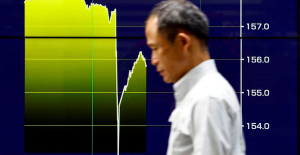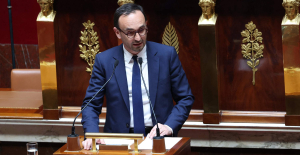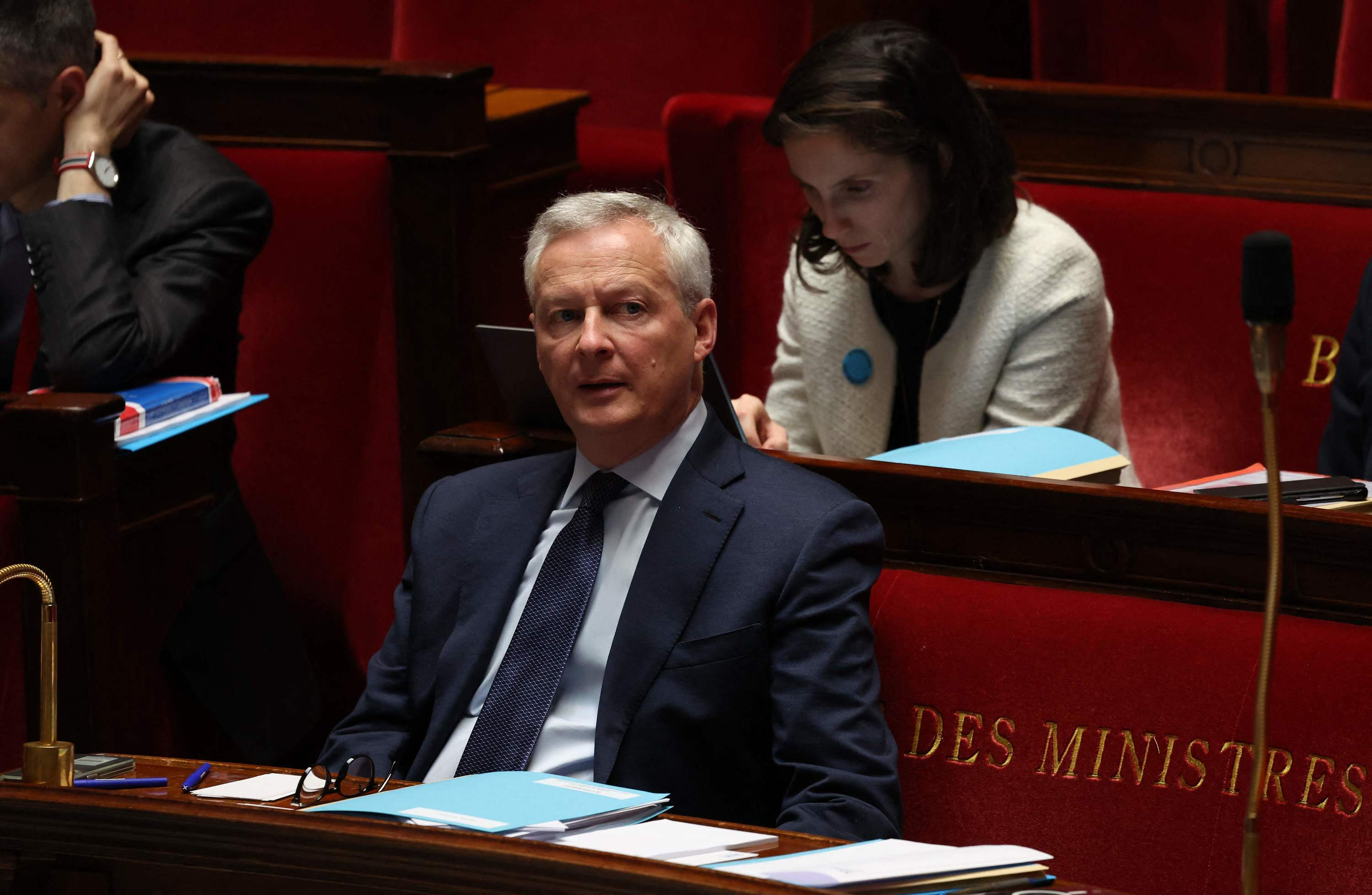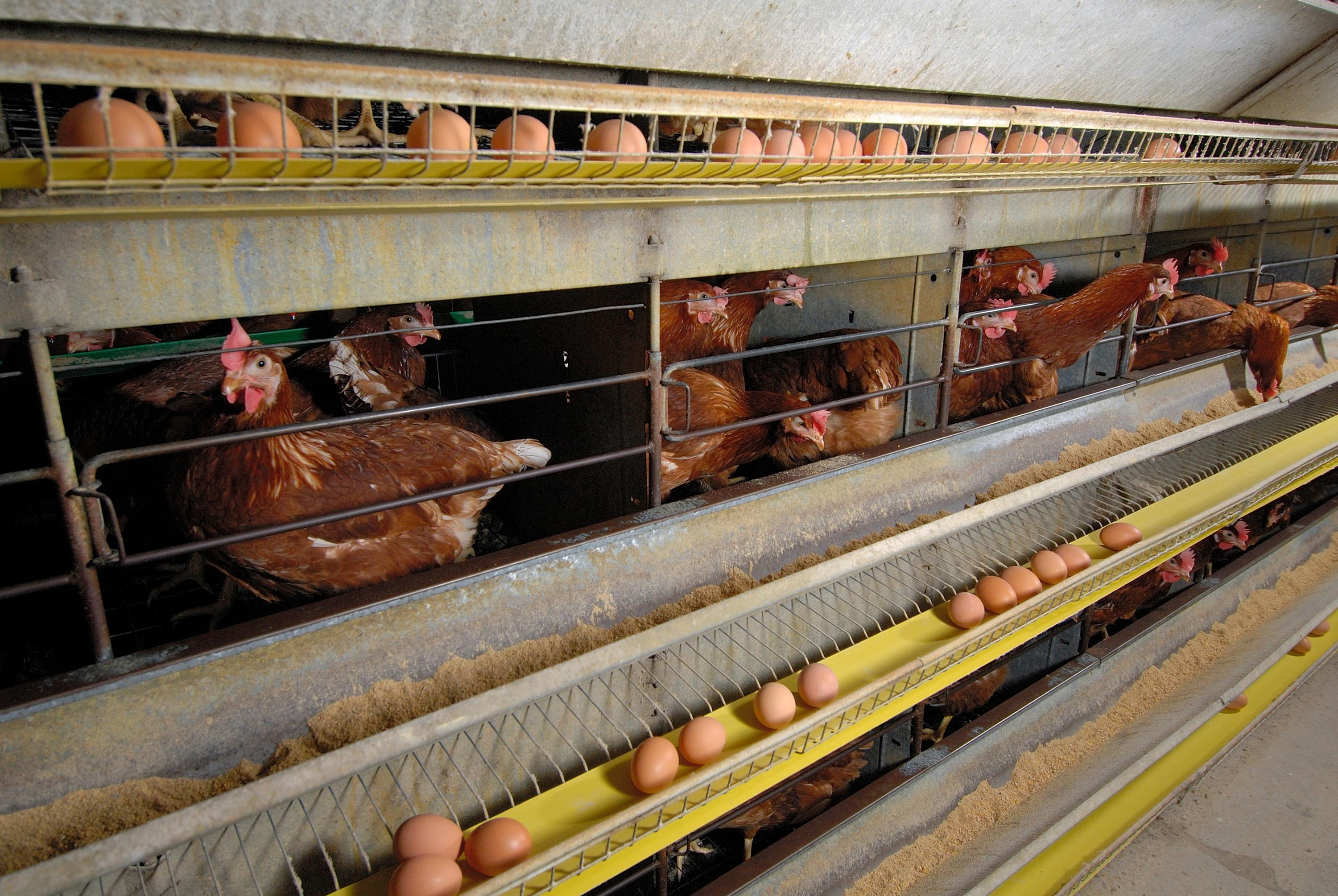Javier Milei will not have had a state of grace. Starting at midday, this Wednesday, January 23, Argentine workers are called to a general strike by the General Confederation of Labor (CGT), the most powerful union in the country, followed by other organizations to protest against government policy. The trade union denounces the all-out deregulation measures taken by the Argentine president to revive the country's economy undermined by three-digit inflation and a colossal debt. This is the first large-scale social movement since the inauguration of the ultraliberal candidate, 45 days ago, a record precocity for a general strike.
In addition to the work stoppages, the unions are also preparing a “massive” demonstration in front of Congress in Buenos Aires. They intend to put pressure on Argentine deputies so that they revoke the “decree of necessity and emergency” (DNU) and not vote for the “omnibus law” and its 664 articles currently under discussion in Parliament.
The two texts provide for deregulation and price liberalization measures in numerous hitherto subsidized sectors, the privatization of public companies and even an in-depth reform of labor law. This last provision is strongly criticized by the CGT, which sees it as calling into question social achievements. The union, which claims 2.5 million members in 2023, calls on its X account for "mobilization, on January 24, to defend workers' rights, severance pay, collective agreements, social security, and right to work. »
At its side, the CGT can count on the support of the Central Workers of Argentina (CTA), another major union in the country, as well as that of the transport, construction, farmers and economic workers unions. informal. “They are mobilizing to test the social terrain and show their claws against the government,” analyzes Carlos Quenan, Argentine economist and vice-president of the Institute of the Americas. However, “the unions are well aware of the legitimacy of the newly elected president” adds the researcher. Hence their call for a strike limited to just half a day.
But Javier Milei has already stepped up to the plate against this mobilization which he perceives as a symptom of the coexistence of “two Argentinas”. The 55-year-old president accused the demonstrators of wanting to “remain in backwardness, the past and decadence”, and opposed them to those who put themselves “on the path to development”.
The social movement comes in a gloomy economic context for Argentina, where inflation rises to 211% over the whole of 2023. The purchasing power of Argentines has fallen sharply and more than 40% of the population now lives in poverty, according to statistics provided by the government. To remedy this, the executive is banking on a “macroeconomic shock” caused by the devaluation of more than 100% of the Argentine peso, which, for the moment, aggravates more than corrects the rise in prices.
Also readArgentina: inflation over 200% in 2023
The general strike to challenge government policy follows a series of spontaneous mobilizations including that of December 20, at the call of left-wing organizations, shortly after Mr. Milei's first measures. With only 25,000 people, the demonstration, only authorized on the sidewalks according to the strict protocol decided by the Minister of Security, did not take on the scale hoped for by its organizers. This January 24, the union centers say they are expecting up to 200,000 people in front of Congress.

 What is chloropicrin, the chemical agent that Washington accuses Moscow of using in Ukraine?
What is chloropicrin, the chemical agent that Washington accuses Moscow of using in Ukraine? Poland, big winner of European enlargement
Poland, big winner of European enlargement In Israel, step-by-step negotiations for a ceasefire in the Gaza Strip
In Israel, step-by-step negotiations for a ceasefire in the Gaza Strip BBVA ADRs fall almost 2% on Wall Street
BBVA ADRs fall almost 2% on Wall Street Sánchez cancels his agenda and considers resigning: "I need to stop and reflect"
Sánchez cancels his agenda and considers resigning: "I need to stop and reflect" The Federal Committee of the PSOE interrupts the event to take to the streets with the militants
The Federal Committee of the PSOE interrupts the event to take to the streets with the militants Repsol: "We want to lead generative AI to guarantee its benefits and avoid risks"
Repsol: "We want to lead generative AI to guarantee its benefits and avoid risks" Osteoarthritis: an innovation to improve its management
Osteoarthritis: an innovation to improve its management The yen jumps 3% then falls again, amid speculation of Japanese intervention
The yen jumps 3% then falls again, amid speculation of Japanese intervention A very busy Friday on the roads of Île-de-France before the Ascension Bridge
A very busy Friday on the roads of Île-de-France before the Ascension Bridge Fraud: the government is preparing new measures for the fall
Fraud: the government is preparing new measures for the fall Nike breaks the bank to keep the Blues jersey
Nike breaks the bank to keep the Blues jersey Madonna ends her world tour with a giant - and free - concert in Copacabana
Madonna ends her world tour with a giant - and free - concert in Copacabana Harry Potter: Daniel Radcliffe “really saddened” by his final breakup with J.K. Rowling
Harry Potter: Daniel Radcliffe “really saddened” by his final breakup with J.K. Rowling Leviathan, New York Trilogy... Five books by Paul Auster that you must have read
Leviathan, New York Trilogy... Five books by Paul Auster that you must have read Italy wins a decisive round against an American museum for the restitution of an ancient bronze
Italy wins a decisive round against an American museum for the restitution of an ancient bronze Omoda 7, another Chinese car that could be manufactured in Spain
Omoda 7, another Chinese car that could be manufactured in Spain BYD chooses CA Auto Bank as financial partner in Spain
BYD chooses CA Auto Bank as financial partner in Spain Tesla and Baidu sign key agreement to boost development of autonomous driving
Tesla and Baidu sign key agreement to boost development of autonomous driving Skoda Kodiaq 2024: a 'beast' plug-in hybrid SUV
Skoda Kodiaq 2024: a 'beast' plug-in hybrid SUV The home mortgage firm rises 3.8% in February and the average interest moderates to 3.33%
The home mortgage firm rises 3.8% in February and the average interest moderates to 3.33% This is how housing prices have changed in Spain in the last decade
This is how housing prices have changed in Spain in the last decade The home mortgage firm drops 10% in January and interest soars to 3.46%
The home mortgage firm drops 10% in January and interest soars to 3.46% The jewel of the Rocío de Nagüeles urbanization: a dream villa in Marbella
The jewel of the Rocío de Nagüeles urbanization: a dream villa in Marbella Europeans: a senior official on the National Rally list
Europeans: a senior official on the National Rally list Blockade of Sciences Po: the right denounces a “drift”, the government charges the rebels
Blockade of Sciences Po: the right denounces a “drift”, the government charges the rebels Even on a mission for NATO, the Charles-de-Gaulle remains under French control, Lecornu responds to Mélenchon
Even on a mission for NATO, the Charles-de-Gaulle remains under French control, Lecornu responds to Mélenchon “Deadly Europe”, “economic decline”, immigration… What to remember from Emmanuel Macron’s speech at the Sorbonne
“Deadly Europe”, “economic decline”, immigration… What to remember from Emmanuel Macron’s speech at the Sorbonne These French cities that will boycott the World Cup in Qatar
These French cities that will boycott the World Cup in Qatar Mercato: Verratti at Barça? A track studied
Mercato: Verratti at Barça? A track studied Rugby: after the defeat during the Six Nations, the Blues will meet the English in September for a test match
Rugby: after the defeat during the Six Nations, the Blues will meet the English in September for a test match Premier League: Liverpool unveils its new jersey for next season
Premier League: Liverpool unveils its new jersey for next season Formula 1: Alpine holds its new executive technical director
Formula 1: Alpine holds its new executive technical director


















